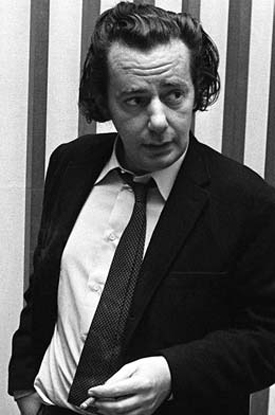     
|
A Confession
David Bezmozgis | February 23, 2011 |

Mordecai Richler.
It’s interesting to hear you say that you still miss Barney’s voice. The book is driven to a great extent by Barney’s strong, idiosyncratic voice. (I, too, remember very well his riff about the colander.) That’s a tough thing to transfer to the screen. How to do that without weighing the film down and without making the audience too conscious of some kind of device—that is, the technical justification for how we are able to hear him? (One example from a relatively recent American film is Alexander Payne’s About Schmidt, in which we hear Schmidt’s voice through the inappropriate letters he writes to the child he is sponsoring in Africa.) What did you have in mind for Barney in that nursing home?
For what it’s worth—and not knowing what solution you had in mind—I was glad not to have Barney’s voice. I appreciated how fluidly the action unfolded and didn’t feel like I missed anything about Barney’s character. He still seemed to me like the Barney I remembered. I admired how, even without the voice-over, you managed to create a film that seemed very faithful to the book. I suspect Richler would have approved. (In my mind, when I tried to conceive of how I might adapt it, it became a road movie.)
On the subject of Richler and his voice, there’s something I’ve often found curious about him. Or if not curious, let’s say surprising. For a man who was a renowned curmudgeon, contrarian, and even cynic, he was also an extraordinary romantic. In his public life and in his books, Richler skewered seemingly every institution except the institution of marriage. The guy really believed in true love and in marital fidelity. You see it in the novel, and you were consistent about it in the movie. Cheating on your spouse, in Richler's moral universe, brings ruin. For Barney, and for Miriam, his beloved third wife, infidelity is unforgivable, irredeemable. In our hip, irreverent world this seems a very uncool position to take.
I’ve rarely heard this aspect of Richler’s work spoken about, and yet I think it’s present in all of his novels. In all of his “mature novels,” the hero—who is increasingly an alter-ego for Richler—behaves badly in any number of ways (he may profane God and country), but he never cheats on his wife. That is the great taboo. Not that I disapprove, mind you, but it seems a much stricter article of his faith than it is of mine. Was this something you thought about when making the film? It factors so heavily into the plot that I wonder what you made of it.
Faithfully yours,
db